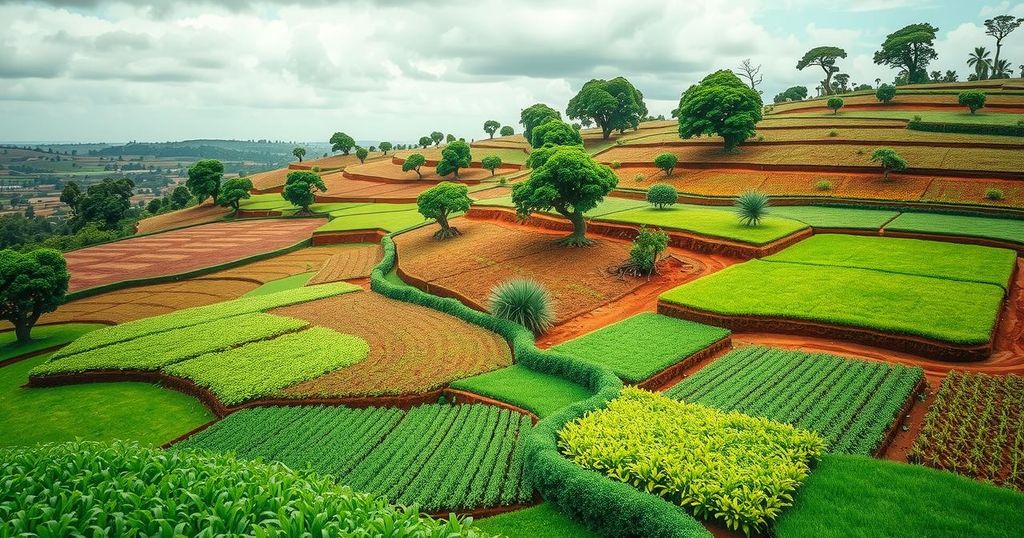The Karamoja Scaling Facility, part of the UNDP Africa Borderlands Centre initiative, addresses the vulnerabilities faced by communities along the Uganda-Kenya border by promoting economic diversification, peacebuilding, and enhanced governance. Key actions include supporting climate-resilient agriculture, initiating alternative livelihood programs, and upgrading critical infrastructure to foster trade. Emphasizing community involvement, the facility is set to transform these border areas into hubs of resilience and economic opportunity.
The Karamoja ABC Scaling Facility, launched by the UNDP Africa Borderlands Centre, is proactively addressing the challenges faced by agropastoralist communities along the Uganda-Kenya border. This initiative aims to enhance resilience amidst climatic shocks, economic marginalization, and security issues in the Karamoja Cluster. By fostering economic diversification, strengthening governance, and promoting climate resilience, it is creating sustainable pathways for peace and development in this vulnerable region.
To combat persistent economic hardships and violence in border areas, the facility focuses on alternative livelihoods and market access. For instance, it supports 300 farmers in adopting climate-smart agriculture, promoting drought-resistant crops for food security. Additionally, sustainable honey production initiatives engage 42 beekeepers, while hay cooperatives provide livestock feed, reducing dependency on migration.
In addition to economic enhancements, the facility integrates peacebuilding efforts to mitigate conflict dynamics. Re-establishing the Ateker Cross-Border Chiefs’ Forum has revitalized local conflict resolution systems, encouraging dialogue between Kenyan and Ugandan leaders. Over 150 youths have been trained as peace ambassadors, fostering community-led peace dialogues and resilience initiatives.
Infrastructure improvements are pivotal for facilitating cross-border commerce. The installation of solar-powered boreholes addresses water scarcity while reducing resource competition. Upgraded market infrastructure and transport corridors will further promote trade, enhancing local economic interdependence.
As the Karamoja ABC Scaling Facility progresses into its next phase, there are plans for expanding this successful model to other vulnerable border regions such as the Sahel and Horn of Africa. Engaging the private sector through the Karamoja SDG Investor Map, and utilizing technology for data-driven decision-making, are also key future strategies. Efforts will continue to shape regional policies prioritizing resilience and sustainable development.
The Karamoja Scaling Facility exemplifies how targeted, integrated investments can transform borderland challenges into opportunities for prosperity. With continued commitment to resilience programming, these regions can shift from fragility to stability and growth in the future.
The Karamoja ABC Scaling Facility represents a comprehensive approach to improving resilience in one of Africa’s most challenging borderland environments. By simultaneously addressing economic, social, and governance challenges, and integrating peacebuilding efforts, the initiative is crafting a promising model for sustainable development that can be adapted in other regions facing similar issues. The commitment to infrastructure, economic diversification, and community engagement ensures that borderlands can flourish as vital economic zones rather than remain marginalized areas.
Original Source: www.undp.org






